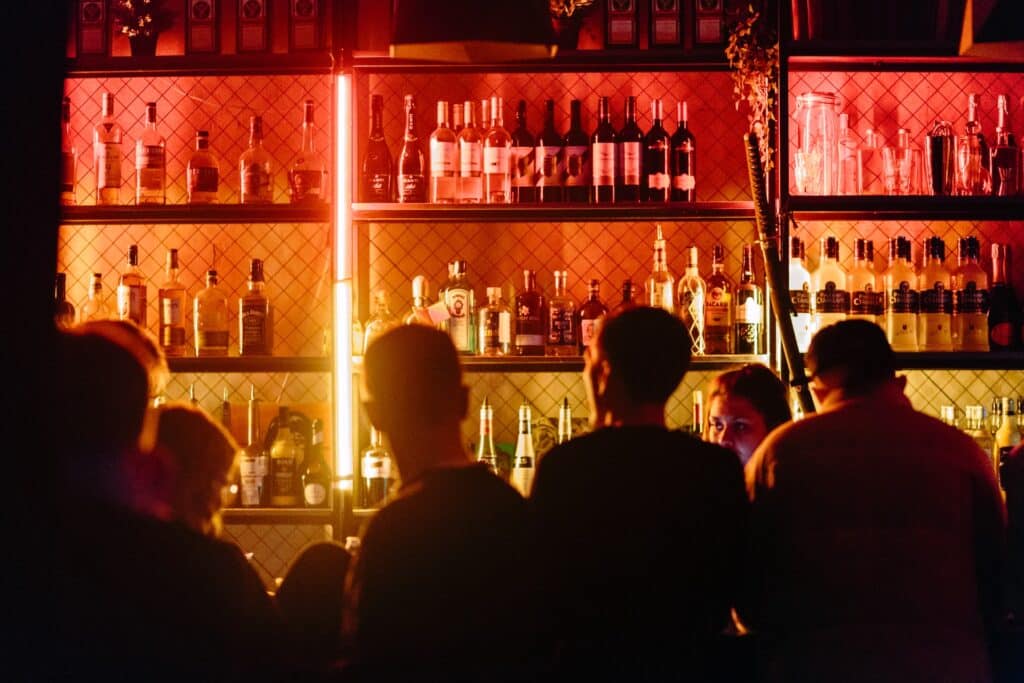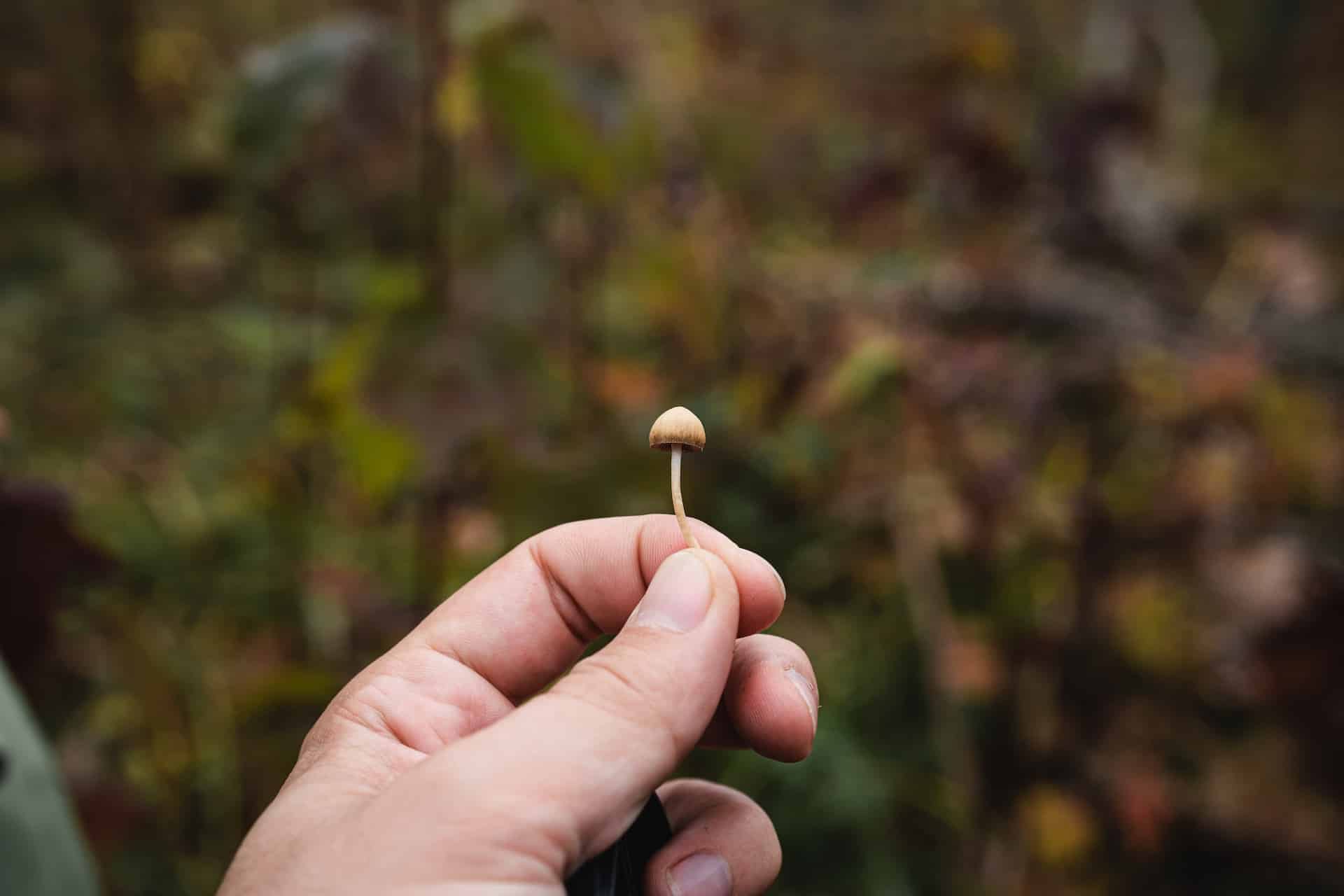This is the second in a three-part series about entheogens, psychedelics, and the Muslims who use them. You can read the first part here.
She was odd.
A mixed-race child of Indonesian and Dutch parentage, she was a frustrating combination of willfulness and distractibility, “It had to be my way or the highway.”
But without the focus to see things through, there was, in reality, no way.
Stubborn, tedious, and ethnically ambiguous, she was picked on relentlessly at school. Socially isolated, she found comfort in talking to God, “I always had a relationship with God. My parents were not religious, but they took me to church for communion. I had such a negative feeling there. I didn’t believe anything they were saying. But I was still always looking for Him. I meditated. I talked to the moon.”
Her liberal parents offered her no other direction apart from an invitation to experiment and to learn through doing. This had worked well enough for her older brother and sister, both of whom had found community and creative expression through the Dutch electronic music scene, “I was twelve and partying at festivals with them. My parents didn’t care as long as everybody was having fun.”

The ferocious independence and impulsivity that made her seem so strange to the kids at school were welcomed by the intoxicated concertgoers, “People wanted to talk to me. They knew my sister. Her boyfriend was one of the DJs, so I had that connection and people wanted to hang out with me. I was accepted and felt admired.” And although she did not partake in drugs and alcohol until much later, their use and abuse was ubiquitous on the scene. Consumption was normalized, setting the stage for future indulgence.
She fell in love with a man whose drug use inaugurated her own experimentation with the mind-bending substances that would change her life. MDMA pills and powdered amphetamine insufflated a few times each week brought a level of energy, intention, and stimulation that was new and exciting. Almost from the beginning, however, she could see there was a dark side.
“The highs were great, but the lows were really bad. It was heavy. I felt hollow and paranoid. I couldn’t sleep.”
More invigorating than even the drugs was her romantic relationship, her first ever. And when it ended she was crushed. Her drug use intensified. It wasn’t about partying anymore. She was palliating the loss of that entirely unique warmth and attention that comes with first love.
She got a job as a bartender, “And for the first year, I didn’t really drink.” But the bars stay open late and there was an expectation for her to keep the patrons coming back, “I was encouraged to drink with the customers. My friend ran the bar and it was a way to make the place more fun for everybody. At this point, I was a functional junkie.”

She was introduced to a man by one of her regulars. He was of Moroccan heritage, raised in a strict Muslim household, though generally disenchanted by the faith of his ancestors. “He was charming. He made me feel good. Looking back, I think it was a kind of game for him, but he had me. I fell in love and it felt good to have that special high again.”
And just like those volatile chemical highs she knew so well, things went almost immediately south.
He was aggressive and physically violent, “Not just with me, but with everybody. I don’t know why I didn’t leave him. I just wanted him to calm down, to find some peace.”
She had the inspired idea to gift him a Qur’an for his birthday, “I was hoping that if he read it, maybe he would find something in there to help him. I didn’t know why he was so angry and I didn’t know what else to do.”
He never touched the book, but it was different for her.
“The Qur’an was just sitting there in our house and calling to me. I picked it up and read the whole thing in a week. I took my shahada at home, but I didn’t tell him.”
Her partner was now using crack cocaine and heroin regularly. Over the course of their nearly two-year relationship, he had been jailed five times for violent offenses. They had devolved into a cycle of on-again off-again abuses and passionate reconciliations. She became pregnant and immediately fearful for her life and the life to come.
She went to her local mosque to proclaim her faith, “I wanted to make sure that the Muslim community knew that I was a Muslim. Because if I died, I wanted to be buried with them. I had seen the devil, and you can’t see the devil without knowing that God must also exist.”

Just as darkness can only be known through the experience of light, and just as limits themselves suggest the reality of limitlessness, so many things are known through their opposites.
Prayer and supplication became an integral part of her daily practice, “It happens when a lot of people first become Muslim, you get this boost in your faith. You want to do everything just right and all of a sudden you start to think that everything you were doing before was wrong and forbidden. I cut off a lot of friends, but the presence of God was so strong in my life.”
There was one night when she was sure her former lover was going to kill her, “I could see it in his eyes. I knew he wanted me dead. I prayed that God would make him walk away. And he did. Just like that, he walked away.”
Five police cars were dispatched to find him. He is currently serving a two-year sentence for burglary as she puts her life back together.
Sobriety came easy.
She has always been strong-willed, “and when I make a decision, I don’t look back.” But she also recognizes that trauma accumulates and must be addressed in order to move forward. Acceptance, ever so elusive from even her earliest days, still remains a challenge as her parents refuse to endorse her decision to live as a Muslim.
Over the course of her ongoing treatment and therapy, it was recognized that her historic instability and lack of focus could be attributed to an undiagnosed attention-deficit disorder. Her team wanted to start her on prescription amphetamines.

This would be like stepping back into the nightmare.
She wanted to be better, but amphetamines were not an option. She dug deeper into her adopted faith, convinced that she would find the answers and help she needed.
Narrated Abu Huraira:
The Prophet said, “There is no disease that God has created, except that He also has created its treatment.”
Bukhari
This was the teaching that gave her the courage to look beyond what conventional medicine was offering. She continued her research and learned about micro-dosing with psilocybin. Mushrooms are legal in her home country of the Netherlands and she found a vendor online that offered counseling and guidance through the titration process, “You need to find the sweet-spot, that place where symptoms are managed, but you are not altered in any way. But to do that, you need to push past a therapeutic dose to find your upper limit.”
Unable to find any credible Islamic guidance on psilocybin use, she consulted the Qur’an:
O you who have believed, do not approach prayer while you are intoxicated until you know what you are saying
Q4:43
This became her standard, “I would take a dose and step into prayer. Was I able to concentrate? Was my head spinning? Did I understand what I was saying?” She quickly found her limit and backed off accordingly.
Her symptoms improved dramatically, “I could never finish anything that I started. I was always distracted, losing focus and leaving everything half-done. Now it’s all so fluid and linear. I start something, finish it, and move on to the next thing.”
She is talking about marriage with a Muslim man, someone who has known her through the years of travail, a man who is kind to her son. Other men at her local mosque have offered to act as her wali, her social guardian as she moves through the marital process.
With so many things moving in such a hopeful direction, she was asked if she was afraid of what would happen when the father of her child is released from prison.
“I am not afraid of anything,” she said.
“I fear only God.”
We are struck by the parallels in her story and that previously related. Both involve abuse at the hands of Muslims. Both involve acceptance and creative release through the electronic music scene. And both involve a sort of reinforcement and expansion of faith mediated by psilocybin.
Dust and Tribe is grounded in the religion of Islam, a tradition that does not allow for intoxicants. We drink coffee and take the antidepressants prescribed by our Muslim psychiatrists, but we do not consume alcohol. And here is suggested a distinction that we propose to be of some value:
A psychoactive compound is not necessarily an intoxicating one.
It’s not a distinction that we have seen categorically drawn by qualified Islamic jurists. Our scholars would do well to formalize an understanding of the difference, because, as will be noted in this story and others, we could use the guidance.
Your comments are welcome, but your judgement is not.
Leave a comment below for posterity or join us in the D&T Chautaqua Discord to discuss this post with other adventurous spirits from around the world.

Here is a Muslim that sustain that psychedelic are NOT haram.
https://m.youtube.com/watch?v=7SkyPhQZdY8
Salam alaikum
If you read or listen to the Quran whilst on LSD or Mushrooms, around 2 hours in, I GURANTEE it could be the most eventful thing in your entire life. The veils will be lifted and you will be certain.